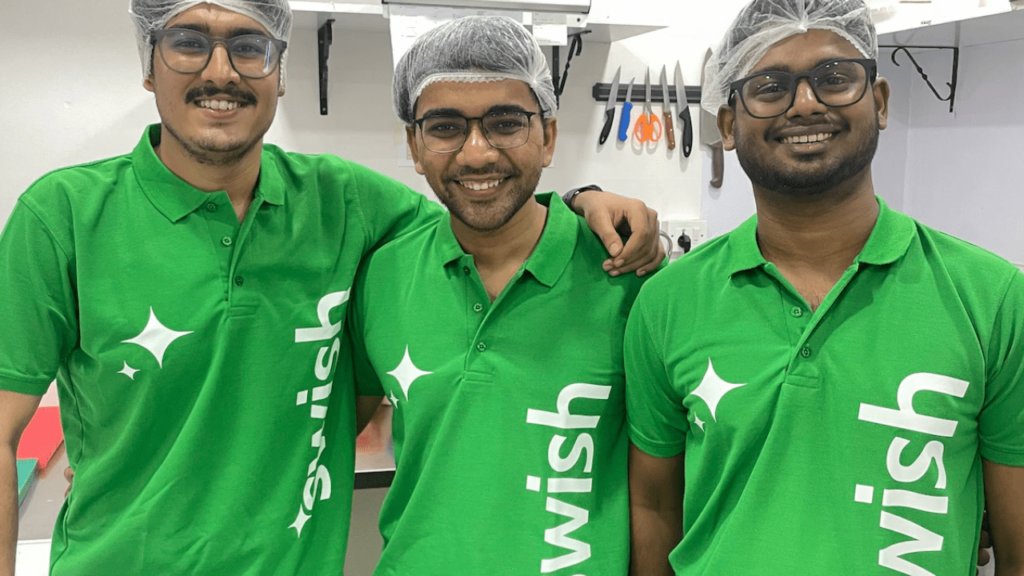Swish, a new food delivery startup in Bengaluru, promises to deliver meals in just 10 minutes. While some users are excited about the rapid service, others have raised concerns about the potential for labor exploitation and the feasibility of such quick deliveries.

With the proliferation of food delivery platforms, the convenience of getting a meal delivered to your doorstep has never been greater. Yet, a new player in the field, Swish, claims to redefine the speed of service, promising food delivery in just 10 minutes. Operating out of Bengaluru’s HSR Layout, Swish aims to bypass the city’s notorious traffic and deliver fresh, hot meals to customers faster than ever. This bold claim, however, has sparked a significant debate on social media, dividing opinions between enthusiasm and skepticism.
The Genesis of Swish
Ujjwal Sukheja, co-founder of Swish, shared the inspiration behind the 10-minute delivery concept in a post on X (formerly Twitter). Sukheja, along with co-founder Saran and CEO Aniket Shah, recognized a common frustration among young people: long waiting times for food deliveries despite the rapid service available at local eateries.
“In HSR, you can get anything quickly—a dosa from a darshini in minutes. But when it comes to online food delivery, the wait can be painfully long,” Sukheja explained. This insight led the team to create Swish, a platform that integrates advanced technology, efficient food preparation, and swift delivery processes to achieve their ambitious 10-minute goal.
Social Media Reaction: A Mixed Bag
The announcement of Swish’s 10-minute delivery service generated a flurry of reactions online. The original post on X garnered over 440,000 views and a wide range of responses. Some users expressed excitement and congratulated the team on their innovative approach. “Congrats on the launch. I’m in HSR, will give it a shot! From crypto to food tech! Nice Swish! Good Luck!” wrote one user.
However, not all feedback was positive. Critics questioned the necessity and feasibility of such rapid deliveries. One user remarked, “Who asked for this dawg? Why can’t y’all build something useful for once instead of just continuing to exploit our awful labor laws and obvious lack of food & hygiene regulations.” Others expressed concerns about the freshness of meals prepared so quickly and the potential for delivery drivers to feel pressured into driving recklessly.
The Debate: Convenience vs. Exploitation
At the heart of the debate lies the question of whether the convenience of a 10-minute food delivery service outweighs the potential drawbacks. Critics argue that the model could lead to labor exploitation, with delivery agents facing increased pressure to meet the stringent time limits. The risks of driving quickly in Bengaluru’s dense traffic could also lead to accidents, raising ethical concerns about worker safety.
Proponents, on the other hand, see Swish as a revolutionary step in the food delivery industry. The ability to receive a hot meal in such a short time frame is seen as a significant convenience, particularly for young professionals and students who may not have the time to wait for traditional delivery services.
Operational Challenges and Feedback
Despite the ambitious promise, Swish has faced challenges in consistently delivering on the 10-minute guarantee. The official X handle of Swish has been actively responding to complaints from customers who received their orders in 15 minutes instead of the promised 10. This discrepancy highlights the logistical difficulties of maintaining such a rapid delivery schedule in a bustling city like Bengaluru.
However, some users have reported positive experiences. “Tried this out of curiosity! Delivered on time!! Me & my friends really liked the samosa & packaging Kudos to Ujjwal Sukheja & team Swish!” shared a satisfied customer. These testimonials indicate that while the service may not be perfect, there is potential for success if the startup can refine its processes.
The Future of Food Delivery
The controversy surrounding Swish’s 10-minute delivery model raises broader questions about the future of food delivery services. As technology continues to advance, the industry is likely to see more innovations aimed at reducing delivery times and enhancing customer convenience. However, it is crucial to balance these advancements with considerations for worker rights and safety.
Swish’s experiment in HSR Layout could serve as a case study for other startups and established companies in the food delivery sector. If successful, it may inspire similar models in other cities and regions. Conversely, if the model proves unsustainable or harmful to workers, it could prompt a reevaluation of the priorities and practices within the industry.
A Quick Review
Swish’s promise of 10-minute food delivery has undeniably sparked a lively debate, reflecting the complexities and challenges of modern food delivery services. While some hail the innovation as a breakthrough in convenience, others raise valid concerns about labor exploitation and the practicality of such rapid deliveries.
As Swish continues to refine its model and address feedback, the broader implications for the food delivery industry will become clearer. In the meantime, the conversation surrounding Swish serves as a reminder of the need to balance innovation with ethical considerations in the pursuit of progress.
Read Next:

The Psychology of Love: Why Valentines Day Matters More Epic Than You Think
Discover the psychology of love and why Valentines Day is more important than you think. Learn how love impacts the brain, strengthens relationships, and boosts

Premier League Highlights: Arsenal Humiliate Man City 5-1, Spurs and Palace Secure Crucial Wins
Arsenal demolished Manchester City 5-1 in a statement premier league highlights win, reigniting their title hopes. Meanwhile, Crystal Palace stunned Man United 2-0, and Tottenham

How Budget 2025 Impacts the Indian Middle-Class: Major Tax Benefits and Glaring Omissions
Budget 2025 offers major tax relief to the middle class, including zero tax on incomes up to ₹12 lakh. However, it misses out on incentives

Degrees vs Employability: Why “Highly Qualified Degree Holders” Struggle to Find Jobs While “Less Qualified Individuals” Get Hired Faster!
Many highly qualified individuals struggle to secure jobs, while less qualified candidates get hired quickly. This Degrees vs Employability paradox is caused by employer preferences,

The Power of Mindset: Why Looking Poor Doesn’t Make You Poor, but Thinking Poor Does!
Discover why looking poor doesn’t define your wealth but thinking poor does. Learn the power of mindset and how a growth-oriented mindset can lead to

Overthinking: How It’s Damaging Today’s Youth – Causes and Cure in 2025
Understanding how overthinking is silently damaging today’s youth, from its causes rooted in societal pressure and social media to its long-term effects on mental health.

Netaji Subhash Chandra Bose: An Epitome of Epic Leadership
Discovering the incredible life of Netaji Subhash Chandra Bose, a leader whose vision, courage, and determination redefined India’s freedom struggle. Explore his leadership qualities, ideology,

Global News Headlines Today: From Gaza Ceasefire to Blue Origin’s Massive 2025 Milestone
Explore today’s top global news headlines, from the Gaza ceasefire and Blue Origin’s historic spaceflight to Apple losing its top spot in China’s smartphone market.

The Hidden Danger of Social Media Nudity: A Threat to Today’s Youth in 2025
Understanding how social media nudity is impacting the youth and their future potential. Learn about the risks of unregulated content, cultural sensitivities, and solutions for
